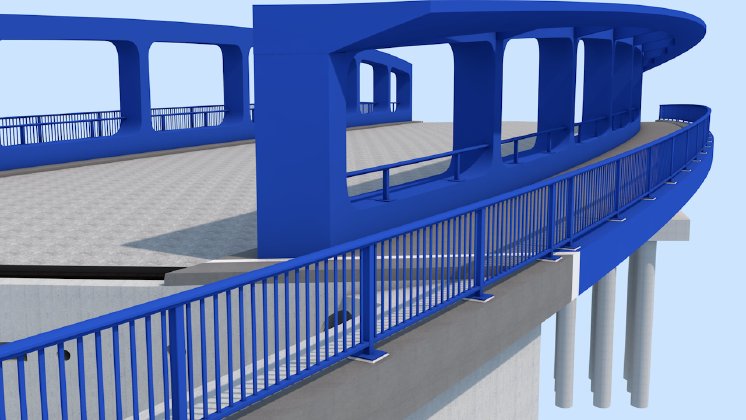AFRY was created in 2019 from the Swedish company ÅF and the Finnish company Pöyry. Headquartered in Stockholm, the service provider employs 17,000 people, making it one of the world's largest companies for engineering and consulting services. In Germany, 500 experts at 16 locations handle around 3,000 projects annually in the fields of transport infrastructure, water, environment, energy, process industry and management consulting. The focus is on sustainability and digitization.
Consistently digital with Open BIM
"In our search for the best provider on the market to support the open BIM concept, we came across ALLPLAN," says Dr. Jens Unger, KIB department manager at AFRY. "After extensive testing, we were convinced by the integrated and loss-free interfaces, which enable interdisciplinary cooperation and reduce the risk of errors in the ongoing design process. But the ability to model and reinforce concrete structures quickly and efficiently is also a decisive advantage over competing solutions," continues Paul-Christian Max, BIM Implementation Manager. AFRY is currently using Allplan software in projects for Deutsche Bahn (DB), among others, and is benefiting from the recently published project template with which users carry out their design projects in accordance with DB's BIM specifications.
Fewer planning errors, increased quality
When deciding on Allplan Bridge, the engineers at AFRY were particularly impressed by its consistency: parametric model creation, structural analysis and detailing in one single solution. This makes it easier to visualize dependencies, improves the quality of the bridge design and reduces interface errors. This is also confirmed by users such as Marina Pütz, BIM coordinator at AFRY: "Bridge design can already be started without having the final route axes of the traffic facility available. Changes to the axis and gradients can now be made quickly and easily". And Paul-Christian Max, BIM Implementation Manager, adds: "The consistency of the data and ease of use, combined with the available national standards and an efficient processing methodology, has significantly improved the quality of our (IFC) models".

